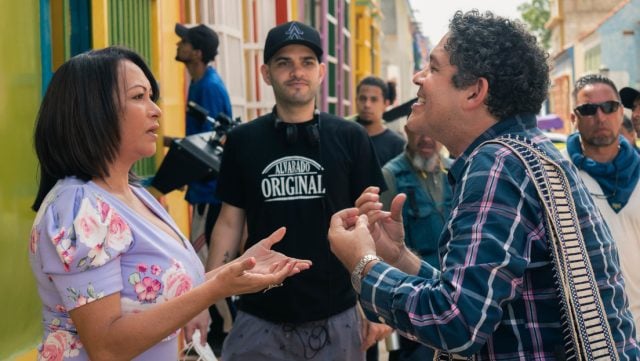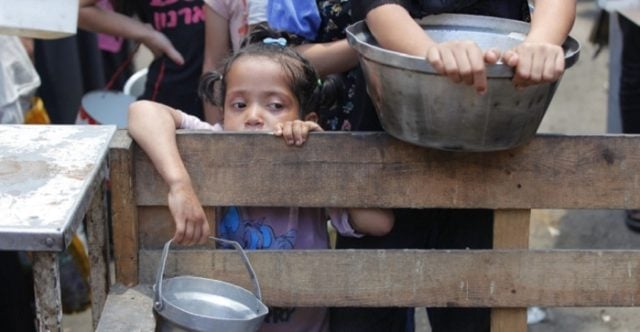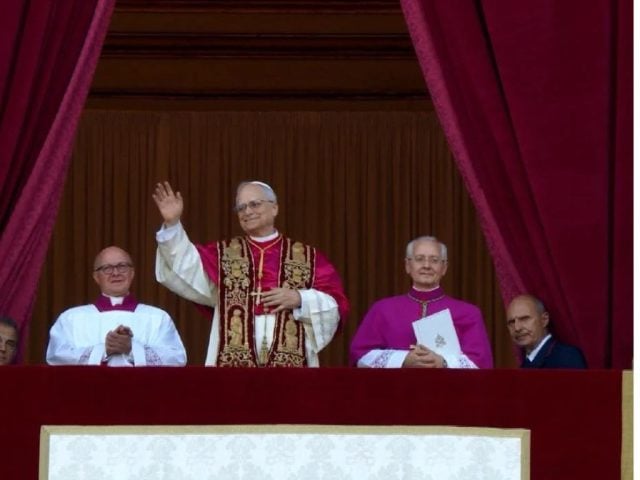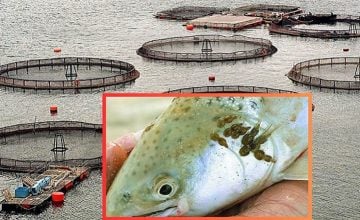The Venezuelan actor, producer and journalist Carlos Daniel Alvarado makes his debut as a film director with his feature movie ‘Venite pa’ Maracaibo‘ (Come to Maracaibo).
A feature film that through comedy and melodrama, seeks to reflect on controversial issues in the life of artists and pay homage to to the talent of the Zulia state, in the northwest of Venezuela.
Alvarado, who since he was a child has had a long career in theater, film and television, spoke with RT to tell all the details of the feature film.
«It is the first Venezuelan film that is pre-produced, produced, post-produced and released in less than a year. We are doing it in seven months, something never seen before in the history of Venezuelan cinema», explains Alvarado, who —between laughs— says that the maracuchos (people fron Maracaibo) are «the most vergatarians (outstanding)» and, for this reason, he had to make the film «more vergataria».
“We planned everything very well to reduce possible inconveniences and risks, that was essential. In addition to a very clear script, with a military-style organization chart and team», said Alvarado.
Filming began in the middle of the year. More than 90% of the film was recorded in Maracaibo, in homage to the Maracúcho artist and to talents from other regions who leave their province to go to Caracas, the capital of Venezuela, in search of opportunities, as his father did, explained Alvarado.
Daniel Alvarado (the father(, was a renowned Venezuelan singer and actor, who passed away in 2020, and Carlos Daniel also dedicated a posthumous book to him.
The actors had to be «100% maracuchos«, he said. «They couldn’t be from Caracas or from Merida, because that has happened a lot in the cinema and on television, and the maracucho feels that they mock them and there is no affinity, it looks false».How was the film prepared?
After choosing Mario Sudano, a Venezuelan actor, playwright, mime and director who began his career at the age of 12 in Maracaibo, as the lead, Alvarado decided to look for the rest of the talent in theater groups in the capital of Zulia.
In total, they made five castings. Most of the characters in the film came from these casting sessions, which integrates new talents together with performers with more than 30 years of career.
“We rehearsed theater-style for five weeks straight, then another four weeks in the studio, and then a week on stage. We took the editor with us during filming, because we decided to record and edit immediately, that allowed us to speed up the process”, highlights Alvarado, especially since working in Maracaibo is a little more difficult due to the strong heat that is around 40 degrees.
Alvarado points out that although the recording began less than a year ago, the story of «Come to Maracaibo» was inspired by a story by the Maracúcho historian Amilcar Briceño, which he read about five years ago.The story of Eladio Morillo
The feature film focuses on the life of a provincial man who seeks success in the capital of his country, but after decades of struggle, fails and returns to his hometown. «There, we considered what would have happened to a Daniel Alvarado, a Gustavo Aguado (singer), or a Daniel Sarcos (entertainer) if they had not been successful. Even an Aroldo Betancourt, who, although he is not a maracucho, also comes from the province”, comments the director.
Eladio Morillo is the main character, a maracucho actor who settles himself in Caracas and although he gets a job at an important television station, he never gets to be ‘on scene’. Over the years, a series of circumstances arise that force him to return to Maracaibo, where he must take care of a rebellious niece.
«He makes his friends and his relatives in Maracaibo believe that he was successful as an actor, but he tells them that his soap operas only air abroad. The reality is that he worked as maintenance personnel on a television station», explains Alvarado.
«We decided to tell it as a comedy with melodrama, because Venezuelans have a lot of humor and the maracucho is the same, even if dramatic situations happen to him. That was the artistic need that was born in my heart, an approach that I learned from my mother, the actress Carmen Julia Álvarez, which is a healthy humor, for the whole family, without profanity, who does not look for the easy joke. An intelligent and witty humor» .
The name of the film is inspired by a Zulian gaita song published in 1979 by the musical group Guaco. During the film, winks are made to different national artists, not just maracuchos, who in real life ‘starred’ in stories like Eladio’s.
In a section of the film – for example – they pay homage to Augusto Pradelli, a renowned creator, actor and theater artist from Maracaibo who 34 years ago created the film «Joligud», known as the first «100% Zulian» Venezuelan feature film. «Augusto acts in the film. He also opened the spaces of his Caribe Concert restaurant and hotel to us, so as to record several scenes».Irreverence, reflection and debate raises Alvarado with this film
Alvarado points out that his film represents irreverence for the cinema, because approaching a story from regionalism could be an alarm for commercialization standards.
«This film is irreverent because under the supposed marketing standards, no one would make a Maracaibo film, because it is regionalist and it would be difficult to sell. I think totally the opposite because, based on that premise, ‘Cien Años de Soledad’ y ‘Macondo’ (One Hundred Years of Solitude and Macondo) would not exist».
Alvarado comments that, in Venezuela, an unwritten rule was imposed that says that if the cinema is not filmed in Caracas, it cannot be said where it was filmed. For example, if it was a story from the Andes or another region with a particular accent, the actors had to speak in a neutral voice.
In this film – says Alvarado – a debate is also opened to reflect on the issues that filmmakers and actors face, as well as on the importance of telling stories from the specific to the universal.
«The story of ‘Venite pa’ Maracaibo’ (Come to Maracaibo) can happen in Argentina, Spain, the US, Russia, anywhere in the world. It is a universal plot that we tell with humor, laughter, tears, reflection, making movies about how the Talent is centralized in the capitals and that of the province is seen as of lower quality, but it turns out that great artists and teachers have emerged from there, from the provinces».
Alvarado points out that in addition to entertaining, the work shows a reality about the lives of so many artists who did not make it and still developed their personal lives.
«How many wanted to be timbaleros, musicians, singers, trumpet players, dancers, who came to Caracas with a dream and are now lawyers, engineers, journalists, merchants, that is where the Venite pa’ Maracaibo debate is generated, with the question: what is true success?, the one on the screen or the one in the family?»Alvarado: There is a blockade to entertainment
The film also raises the controversy over the production of soap operas and entertainment programs, which in recent years has been practically non-existent in his country.
In Venezuela -he comments – national production was abandoned, especially for entertainment with soap operas, due to «a managerial policy that decided to block them, because they did not want to continue investing in them». However, Alvarado believes that there is a new outlook on this matter.
«It is changing and inevitably it has to change, because there are filmmakers and talents who want production in Venezuela to be reactivated, it all depends on marketing. I believe in that and I express it in the film. The only thing that has changed are the formats, now there is streaming, soap opera series and novels told in film format.
In Venite pa’ Maracaibo, production – for example – generated some 60 direct jobs and another 120 indirect ones. «It revolutionized the center of Maracaibo economically. It was seen that entertainment can enhance the economy, because it not only benefits the artist, but also the merchant, the entrepreneur, the ice cream man or the supermarket where we are going to record».
Alvarado affirms that the film, which required great personal and family efforts, also received the support of the National Telecommunications Commission of Venezuela (Conatel), which bet on it as «a flagship project to rescue Venezuelan entertainment spaces, under the premise that a town that is not seen on your screen, is a town that does not exist».
Although making films in Venezuela implies great efforts and personal challenges, the filmmaker considers that «there is a lot of talent within Venezuelan cinematography that is committed to creating documentaries, short films and feature films». «That is seen in the number of productions that are coming out, because there is a great need to tell stories».











